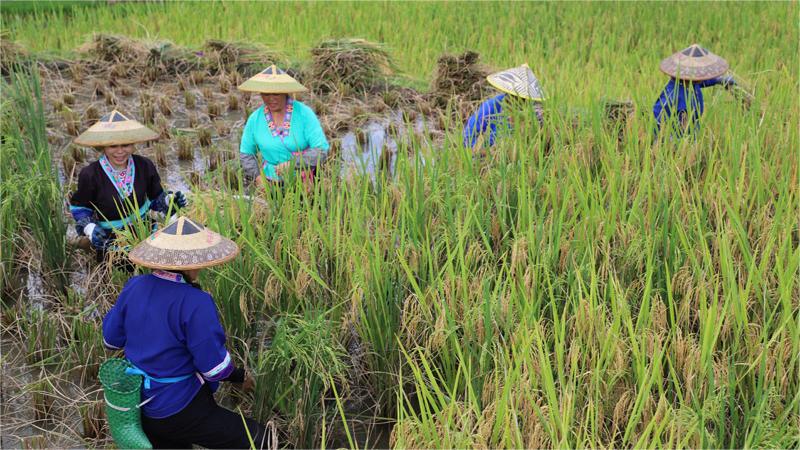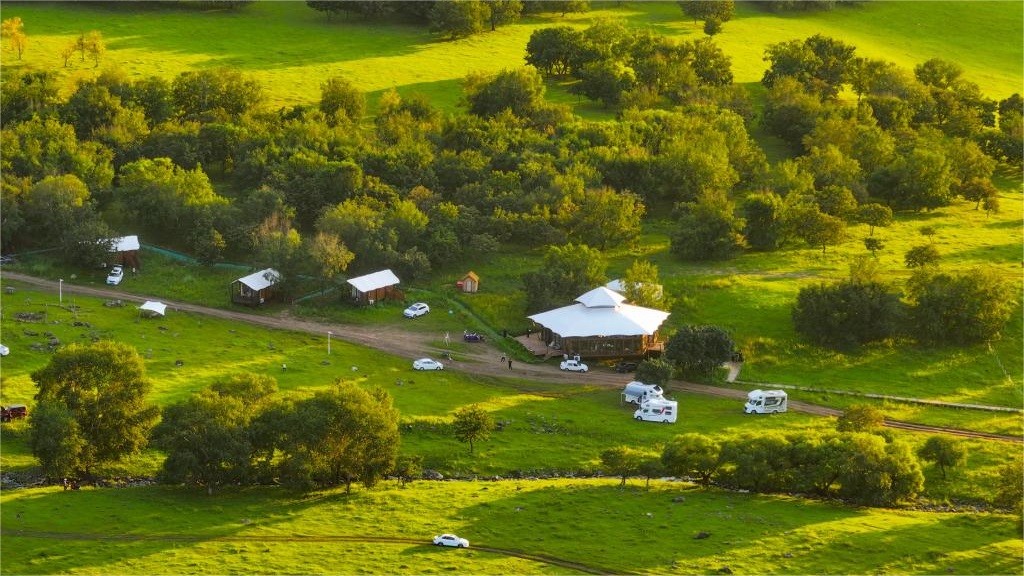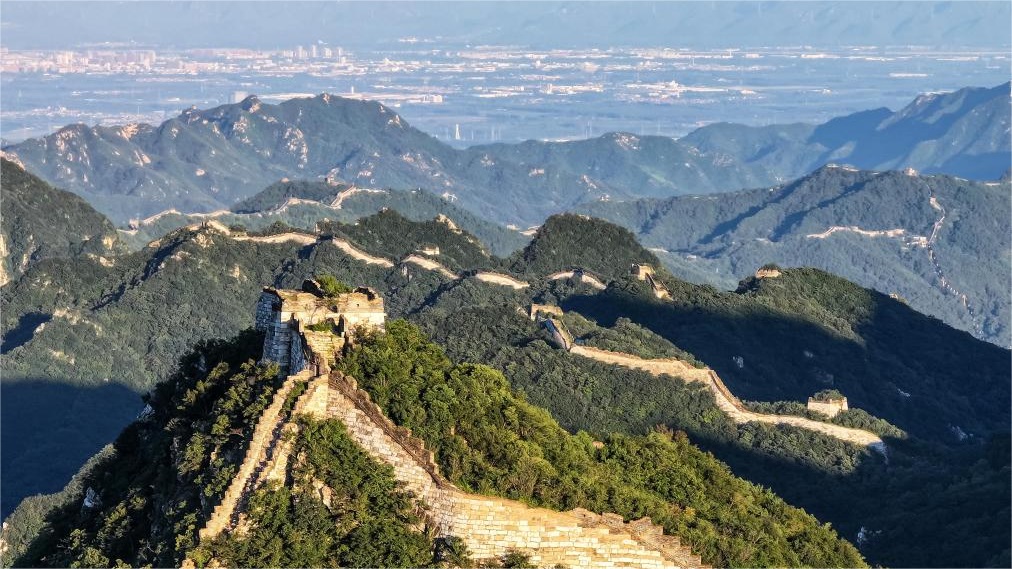Ginseng in NE China's Changbai Mountain grows into 'gold mine'
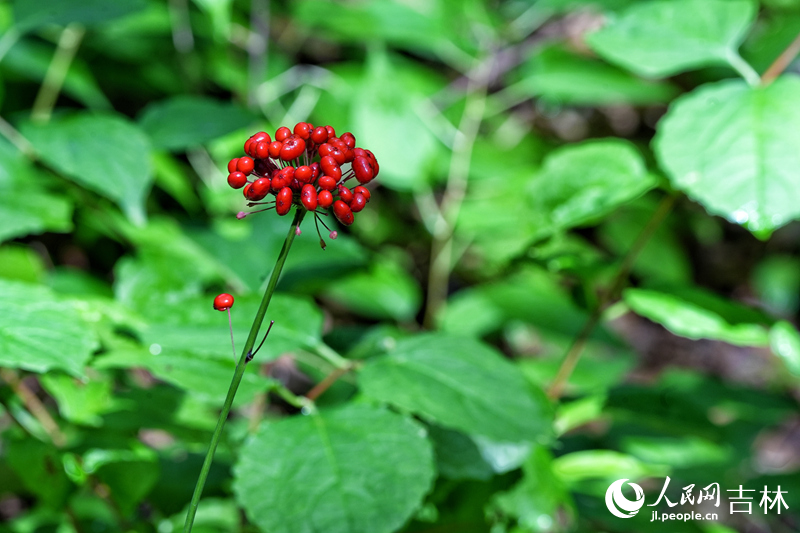
Photo shows ginseng berries in Changbai Mountain, northeast China's Jilin Province. (People's Daily Online/Li Yang)
After a summer of abundant rainfall, ginseng plants deep in the Changbai Mountains have grown vigorously. These plants are about to undergo a remarkable transformation as they are harvested by the so-called "mountain men."
In recent days, Sun Liangzhu, a master ginseng hunter, and his apprentices have been venturing deep into the forest to "release the mountains" – a term used in the Changbai Mountain region to describe the tradition of gathering wild ginseng, now listed as a national intangible cultural heritage.
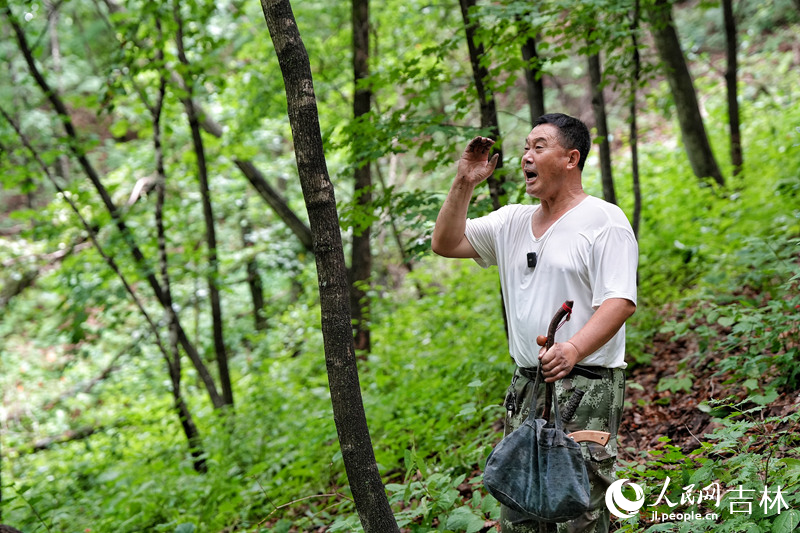
Sun Liangzhu, head of a wild ginseng digging team, calls out to his team members after finding ginseng in Changbai Mountain, northeast China's Jilin Province. (People's Daily Online/Li Yang)
Selecting the best location, preparing ropes, and carefully observing the growth of the ginseng... "This year, the weather in Changbai Mountain has been favorable, and the ginseng is growing well," predicts Sun, looking at the lush flowers on the "five-leaf" ginseng plants.
The Changbai Mountain region is China's main ginseng-producing area. At that latitude, with specific slope angles and light conditions due to the density of trees, ginseng thrives. In 2023, Jilin Province harvested 34,000 tonnes of ginseng, and the comprehensive output value of the industry grew by 10.3 percent year-on-year, exceeding 70 billion yuan ($9.83 billion) for the first time.
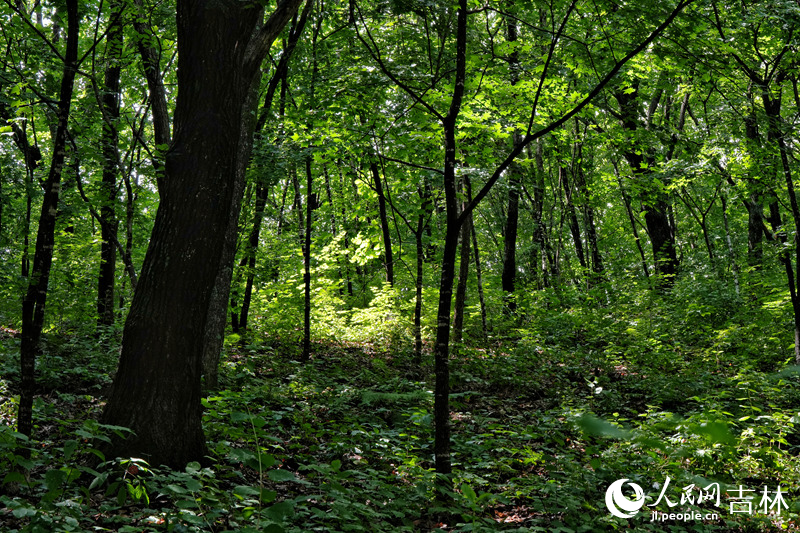
Photo shows a lush forest in Changbai Mountain, northeast China's Jilin Province. The forest provides a suitable environment for ginseng growth. (People's Daily Online/Li Yang)
King of all herbs
Recently, the Changbai Mountain region has entered its peak tourist season, and ginseng specialty stores in Fusong county, a major ginseng-producing county at the foot of the mountains, have entered their busiest sales period.
"This display cabinet contains wild ginseng over 15 years old, each certified by the 'Changbai Mountain Ginseng Brand'. You can buy with confidence," says Chen Qiang, manager of a ginseng specialty store in Fusong.
Chen Qiang has been involved in the ginseng trade since childhood, following in his father's footsteps. He greets customers with a smile, saying, "Nowadays, the ginseng industry is thriving, and prices are good. This little ginseng plant has led us merchants to a better-off life."

Photo shows a ginseng root from Changbai Mountain, northeast China's Jilin Province. (People's Daily Online/Li Yang)
Although the current prices are "good," ginseng, known as the "king of all herbs," once sold for the price of a common vegetable in its main producing areas.
"In those days, every household produced and sold ginseng independently, blindly expanding planting areas and using pesticides and fertilizers with high residues. As a result, not only did yields not increase, but quality also declined," explained Chen Qiang. "Because the ginseng did not meet the standards required by pharmaceutical companies, it could only be sold at the price of a common vegetable."
Living near valuable resources without receiving a decent income, the situation improved significantly after Jilin Province launched the "Changbai Mountain Ginseng Revitalization Project".
"The government formed a Changbai Mountain Ginseng Planting Alliance, and soon experts came to us and said, 'If you want to improve the quality and yield of your ginseng, you must adopt standardized cultivation. Let us teach you how to do it properly,'" recalled Chen Qiang, who was initially skeptical. "I've been planting ginseng for over 30 years; could they have more experience than me?"
However, Chen Qiang was eventually convinced.
"The alliance provided us with comprehensive technical guidance, teaching us how to apply green fertilizer correctly, how to prevent freezing, adjust temperature and lighting, and introducing us to new techniques." Now, Chen Qiang no longer fears pesticide tests – with quality assurance, prices have steadily increased.
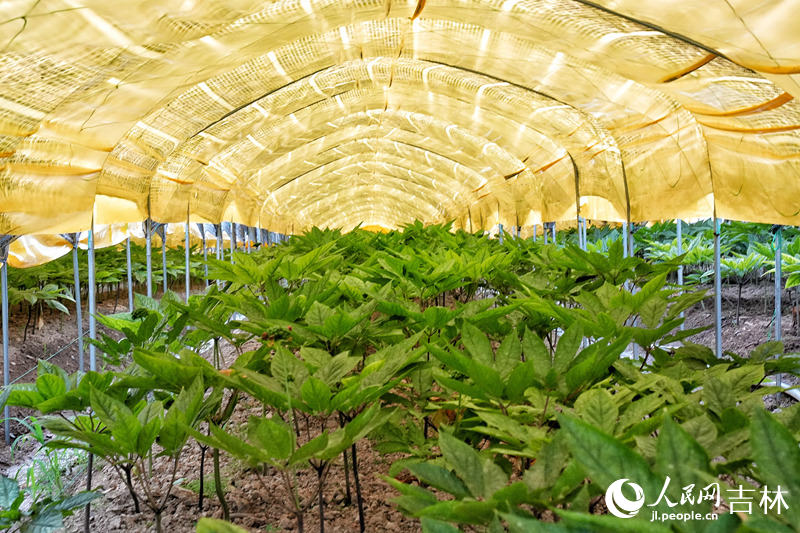
Photo shows a demonstration zone of ginseng seed breeding in Fusong county, Baishan city, northeast China's Jilin Province. (People's Daily Online/Li Yang)
From planting to selling ginseng, Chen Qiang is busier than ever. "The implementation of the 'one ginseng one code' traceability platform, cracking down on counterfeit products, and maximum penalties have helped regulate the market, allowing us ginseng farmers to focus on our business with peace of mind." Chen Qiang is optimistic about the future prices and quality of ginseng.
The power of a single market
Early in the morning, the Changbai Mountain Ginseng Market in Wanliang township, Fushan county, is already bustling with buyers and sellers.
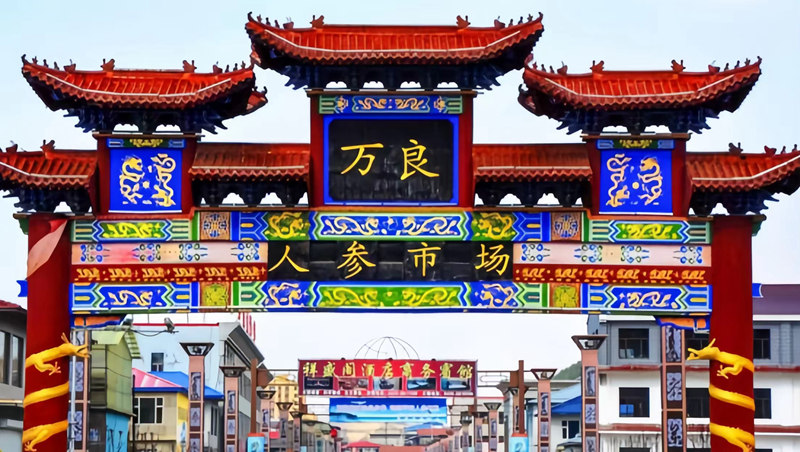
Photo shows Changbai Mountain Ginseng Market in Wanliang township, Fusong county, Baishan city, northeast China's Jilin Province. (Photo courtesy of the publicity department of the Communist Party of China Fusong county committee)
"Fresh ginseng is delicate and dries easily in high temperatures, so it needs to be sold early. But cultivated ginseng is different; farmers usually harvest it during the day, and transactions often concentrate in the afternoon or even become livelier at night," Zhang Guohong, manager of the market, explained.
During peak trading seasons, over 50,000 people come to the Changbai Mountain Ginseng Market daily, with an annual ginseng transaction volume exceeding 40,000 tonnes, accounting for about 80 percent of the total national volume, and a transaction value of 8 billion yuan. "It's not an exaggeration to say that the Changbai Mountain Ginseng Market can influence global ginseng prices," said Zhang proudly.
Zhang recalled that in the past, villagers had to carry sacks of ginseng around the country to sell, and it was difficult to find the same buyer from one year to the next. Whether the ginseng sold well depended entirely on luck.
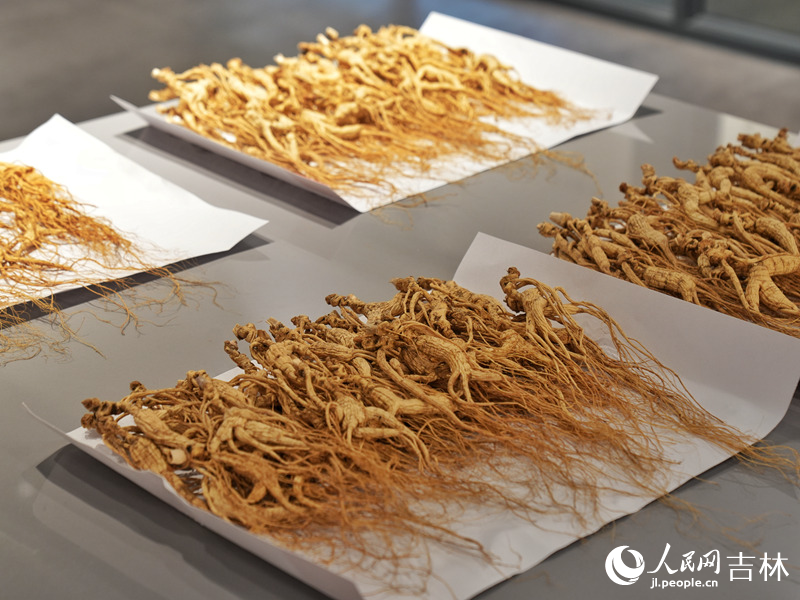
Photo shows ginseng roots from Changbai Mountain, northeast China's Jilin Province. (People's Daily Online/Li Yang)
Selling ginseng individually far from home did not form a market mechanism. Therefore, the local ginseng masters led the establishment of a centralized market in Wanliang township, where there were many ginseng farmers and convenient transportation, gradually turning it into a hub for ginseng transactions.
In 2005, the Changbai Mountain Ginseng Market was relocated and expanded under government leadership. Today, in the 16,800-square-meter trading hall, over 200 ginseng products are sold, reaching markets in more than 30 countries and regions, including Singapore, Japan, and South Korea.
"In recent years, the Changbai Mountain Ginseng Market has introduced quality testing, a quotation center, a big data center, and a multimedia information center, keeping the old market up-to-date with new demands," said Zhang.
This year, an investment of 240 million yuan has been made to build a ginseng specialty town industrial park, which will integrate warehousing, processing, sales, research and development, testing, and incubation of small and medium-sized enterprises into a complete industrial chain.
A fresh face facing the world
For many people in Jilin, there is always a glass jar filled with ginseng soaking in alcohol at home. The jar is filled with ginseng roots with long tendrils, emitting a strong aroma of fermented grains. Only during holidays would elders pour a little bit of the liquor to savor its exquisite taste.
Today, ginseng is presented to the world in a different way.
"After years of development and research, ginseng is no longer just a medicinal plant. Its active components, after processing, can be applied to various fields, and ginseng skincare products are typical examples," says Chen Yinghong, a chief pharmacist at the Jilin Academy of Chinese Medicine Sciences.
At a company based in Fusong county, Baishan city, Jilin Province, ginseng cosmetics are sold worldwide.
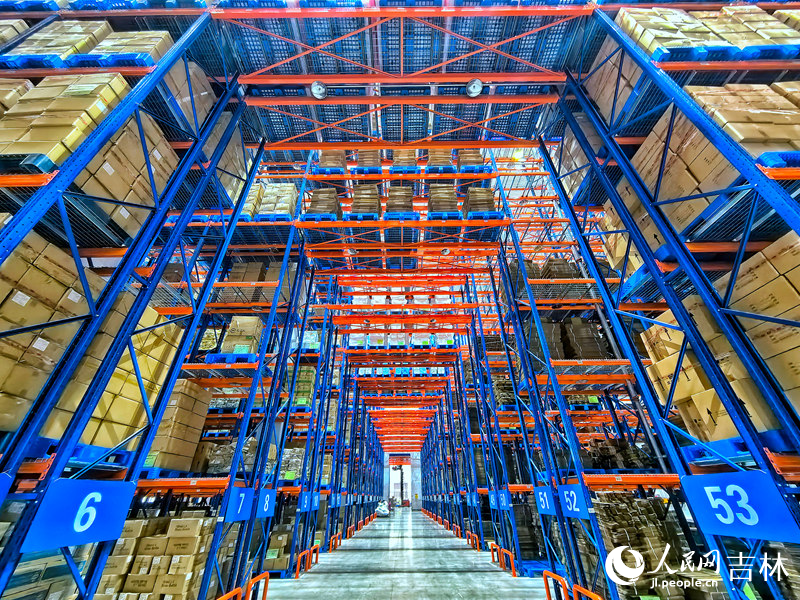
Photo shows the warehouse of a company based in Ji'an city, Jilin Province. The company has developed over 600 ginseng-related skincare and cosmetic products. (People's Daily Online/Li Yang)
"We have developed over 150 ginseng skincare products and opened more than 1,500 specialty stores nationwide, receiving very positive feedback from the market," says Zheng Zupeng, an executive at the company.
In addition to skincare products, Jilin Province has also developed over 1,000 products through deep processing, including ginseng foods, medicines, health supplements, and biological products.
"We blend Changbai Mountain ginseng with Changbai Mountain honey, making it tasty and easy to carry, ready to eat anytime," explained Zong Shuwei, an executive at a company working on edible ginseng uses. The powder and lozenge product has been well received in the market. "Tear open the packaging, put a ginseng lozenge in your mouth, and the sweetness of the honey leaves a lingering fragrance of ginseng."
Strengthening the Changbai Mountain ginseng industry relies heavily on technological support.
Currently, Jilin Province is extending the deep-processing industry chain, accelerating the diversified development of ginseng in multiple fields, continuously improving the efficiency and added value of the ginseng industry, and striving to build it into a 100-billion-yuan advantageous industry.
"We must mobilize the entire province's efforts, starting from the source, guiding industry self-discipline, and better cultivating and maintaining the ginseng brand, truly making the 'golden signboard' of Changbai Mountain Ginseng shine brighter," said a Jilin Province leader.
Photos
Related Stories
Copyright © 2024 People's Daily Online. All Rights Reserved.






